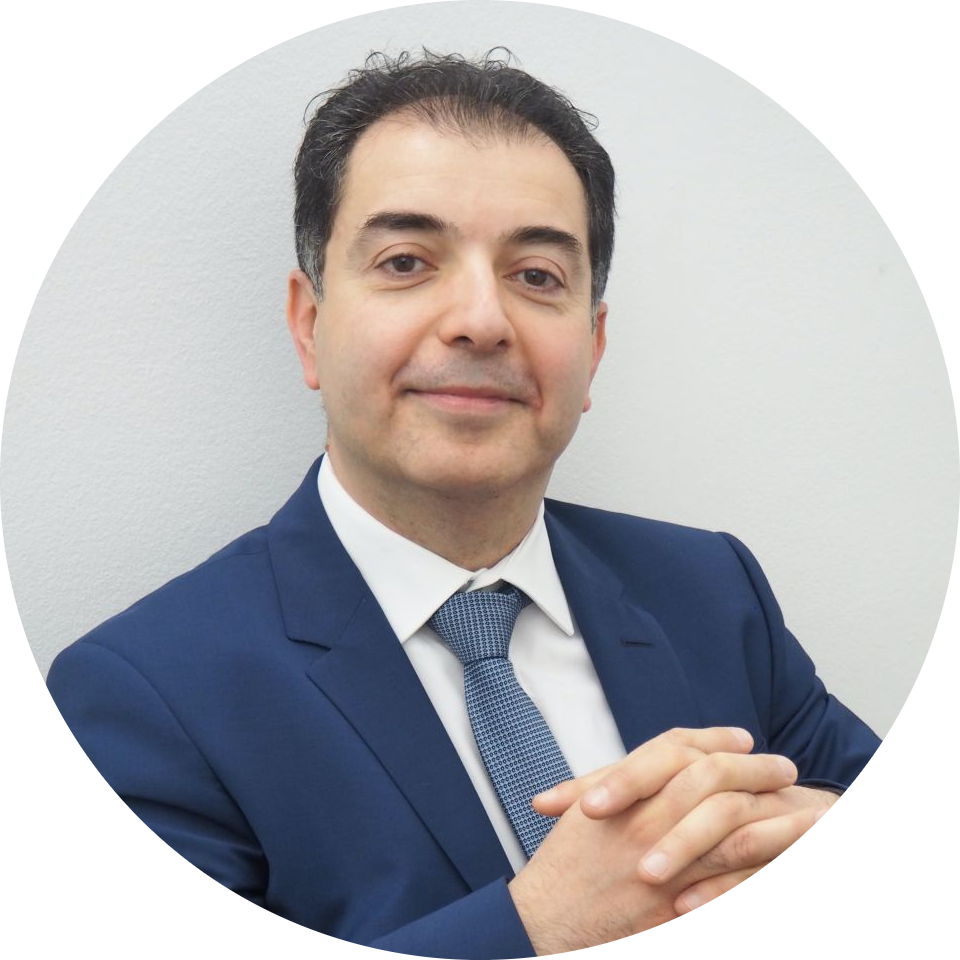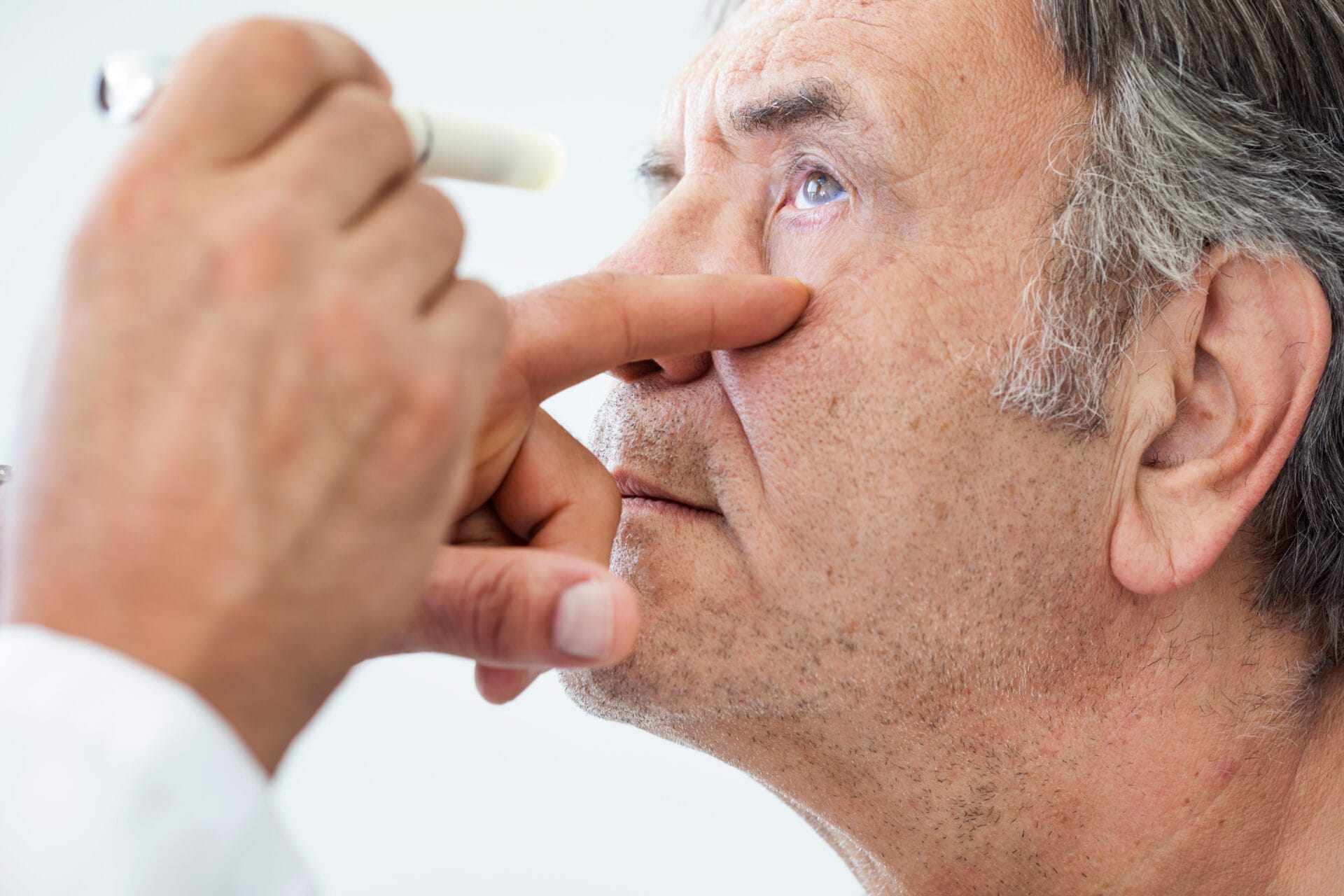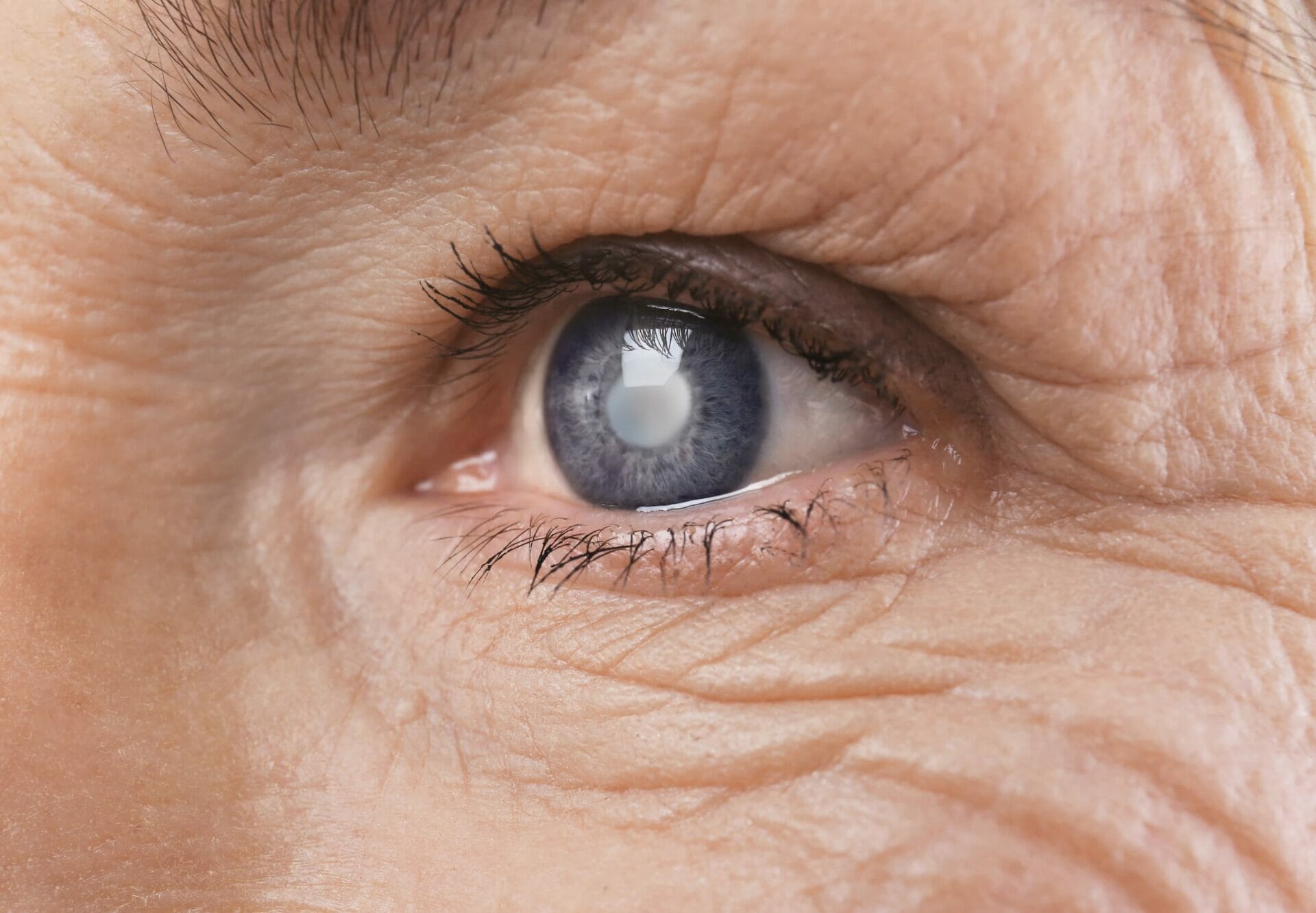For FAQs regarding Coronavirus please click here
What are congenital cataracts?
A relatively rare condition, congenital cataracts are a type of eye disorder that can affect infants and children.
While they can be present at birth, they may also develop in the first few months or years of life.
Cataracts occur when the normally clear lens of the eye becomes cloudy or opaque, causing vision problems.
Congenital cataracts affect infants and children — either present at birth or develop shortly afterwards, typically within the first few months or years of life.
Congenital cataracts affect approximately around 3 to 4 in every 10,000 babies in the UK.
The causes of congenital cataracts can vary, but they are often due to genetic mutations that affect the development of the lens during pregnancy. Other possible causes include infections during pregnancy, such as rubella or metabolic disorders. In some cases, the cause of congenital cataracts may be unknown.
Types of congenital cataracts
There are two main types of congenital cataracts: syndromic and non-syndromic.
Management of the two types can differ. In syndromic cases, cataracts may be part of a larger collection of symptoms that require a more comprehensive management approach. In non-syndromic cases, the focus may be on managing cataracts and addressing any associated vision or developmental problems.
More about congenital cataracts
Congenital cataract symptoms
Congenital cataracts can affect one or both eyes and can vary in severity. Some children may have small cataracts that do not significantly impact their vision, while others may have larger cataracts that cause significant vision loss.
Symptoms of congenital cataracts can include:
- Cloudy or blurry vision
- Poor visual acuity
- Nystagmus (involuntary eye movements)
- Strabismus (crossed or misaligned eyes)
- Sensitivity to light
- Abnormal red reflex (a red glow seen when light is shone into the eye)
Congenital cataracts can sometimes be difficult to detect, especially in infants who cannot communicate their vision problems.
However, there are certain signs that parents can look for, such as:
- A white or greyish-white pupil (instead of black) in flash photographs
- Lack of eye contact or poor visual tracking
- Delayed developmental milestones related to vision, such as reaching for objects or crawling
Congenital cataract causes
There are many different causes of congenital cataracts. The most common causes include:
- Genetic factors. Some congenital cataracts are caused by inherited genetic mutations.
- Infections during pregnancy. Certain infections contracted by the mother during pregnancy can lead to congenital cataracts in the baby.
- Metabolic disorders. Certain metabolic disorders such as galactosaemia and Lowe syndrome have been associated with congenital cataracts.
- Trauma during pregnancy or childbirth. Physical trauma to the mother’s abdomen or head during pregnancy or childbirth can increase the risk of congenital cataracts in the baby.
Sometimes, the cause of congenital cataracts will remain unknown — but that does not mean they can’t be treated.
Congenital cataracts prognosis
Congenital cataracts that are mild and do not significantly impact vision may not require treatment, particularly if they occur in both eyes. In such cases, the doctor may simply monitor the cataract to ensure that it does not worsen over time.
However, moderate to severe congenital cataracts that affect vision or cataracts that only occur in one eye will require treatment.
Cataract removal surgery is the most common treatment for these types of cataracts. The procedure involves removing the cloudy lens and replacing it with an intraocular lens implant to restore vision.
In some cases, the surgery may need to be performed shortly after birth, especially if the cataract is large or if it affects the development of the eye. However, in most cases, surgery is performed when a child is a few months old or older.
The type of artificial lens used in the surgery depends on various factors such as the child’s age, the size of the cataract and the health of the eye.
Congenital cataract complications
If congenital cataracts are not corrected, they can lead to various complications that can affect a child’s visual development and cause permanent visual impairment.
Some of the potential complications of not correcting congenital cataracts include:
- Amblyopia,also known as lazy eye, a condition where the brain suppresses the vision in the affected eye
- Nystagmus, where the eyes move involuntarily, resulting in reduced visual perception
- Strabismus,where the eyes do not align properly
- Delayed visual development – this can affect the child’s ability to learn and perform daily activities
The most serious complication of not correcting congenital cataracts is permanent visual impairment. This can occur due to a phenomenon known as ‘deprivation amblyopia’.
This condition prevents the brain from learning how to interpret visual information because the cataract blocks the visual signals.
It is possible for the brain to become incapable of seeing correctly even after later removal of the cataract if the cataract is not removed early enough. This can lead to permanent vision loss.
Congenital cataract treatment
Most babies with congenital cataracts will need surgery to remove the cloudy lens and restore their vision. At Eye Clinic London, we offer two different types of treatment for congenital cataracts.
Phacoemulsification
This is a minimally invasive surgical technique used to remove the cataract. A small incision is made in the cornea and an ultrasound probe is inserted to break up the cloudy lens. The fragments are then suctioned out and an intraocular lens implant (IOL) is placed in the eye.
Extracapsular cataract extraction
This treatment is used when the lens needs to be removed in one piece. A larger incision of around 10-12mm is required. Stitches are needed, so recovery can take longer.
How is congenital cataract surgery performed on babies?
The surgical procedure for congenital cataracts in babies is performed under general anaesthesia.
The baby’s eye is first numbed with local anaesthetic drops and a small incision is made in the eye. The surgeon then removes the cloudy lens and replaces it with an artificial lens. The surgery typically takes less than an hour and the baby can usually go home the same day.
After surgery, the baby will need to wear an eye patch for a few days or weeks to help the eye heal and prevent infection. The baby will also need to have eye drops applied to prevent inflammation and promote healing.
Why you should consider cataract surgery
THE BEST THING ABOUT CATARACT SURGERY…
Congenital cataract symptoms
Congenital cataracts can affect one or both eyes and can vary in severity. Some children may have small cataracts that do not significantly impact their vision, while others may have larger cataracts that cause significant vision loss.
Symptoms of congenital cataracts can include:
- Cloudy or blurry vision
- Poor visual acuity
- Nystagmus (involuntary eye movements)
- Strabismus (crossed or misaligned eyes)
- Sensitivity to light
- Abnormal red reflex (a red glow seen when light is shone into the eye)
Congenital cataracts can sometimes be difficult to detect, especially in infants who cannot communicate their vision problems.
However, there are certain signs that parents can look for, such as:
- A white or greyish-white pupil (instead of black) in flash photographs
- Lack of eye contact or poor visual tracking
- Delayed developmental milestones related to vision, such as reaching for objects or crawling
Congenital cataract causes
There are many different causes of congenital cataracts. The most common causes include:
- Genetic factors. Some congenital cataracts are caused by inherited genetic mutations.
- Infections during pregnancy. Certain infections contracted by the mother during pregnancy can lead to congenital cataracts in the baby.
- Metabolic disorders. Certain metabolic disorders such as galactosaemia and Lowe syndrome have been associated with congenital cataracts.
- Trauma during pregnancy or childbirth. Physical trauma to the mother’s abdomen or head during pregnancy or childbirth can increase the risk of congenital cataracts in the baby.
Sometimes, the cause of congenital cataracts will remain unknown — but that does not mean they can’t be treated.
Congenital cataracts prognosis
Congenital cataracts that are mild and do not significantly impact vision may not require treatment, particularly if they occur in both eyes. In such cases, the doctor may simply monitor the cataract to ensure that it does not worsen over time.
However, moderate to severe congenital cataracts that affect vision or cataracts that only occur in one eye will require treatment.
Cataract removal surgery is the most common treatment for these types of cataracts. The procedure involves removing the cloudy lens and replacing it with an intraocular lens implant to restore vision.
In some cases, the surgery may need to be performed shortly after birth, especially if the cataract is large or if it affects the development of the eye. However, in most cases, surgery is performed when a child is a few months old or older.
The type of artificial lens used in the surgery depends on various factors such as the child’s age, the size of the cataract and the health of the eye.
Congenital cataract complications
If congenital cataracts are not corrected, they can lead to various complications that can affect a child’s visual development and cause permanent visual impairment.
Some of the potential complications of not correcting congenital cataracts include:
- Amblyopia,also known as lazy eye, a condition where the brain suppresses the vision in the affected eye
- Nystagmus, where the eyes move involuntarily, resulting in reduced visual perception
- Strabismus,where the eyes do not align properly
- Delayed visual development – this can affect the child’s ability to learn and perform daily activities
The most serious complication of not correcting congenital cataracts is permanent visual impairment. This can occur due to a phenomenon known as ‘deprivation amblyopia’.
This condition prevents the brain from learning how to interpret visual information because the cataract blocks the visual signals.
It is possible for the brain to become incapable of seeing correctly even after later removal of the cataract if the cataract is not removed early enough. This can lead to permanent vision loss.
Congenital cataract treatment
Most babies with congenital cataracts will need surgery to remove the cloudy lens and restore their vision. At Eye Clinic London, we offer two different types of treatment for congenital cataracts.
Phacoemulsification
This is a minimally invasive surgical technique used to remove the cataract. A small incision is made in the cornea and an ultrasound probe is inserted to break up the cloudy lens. The fragments are then suctioned out and an intraocular lens implant (IOL) is placed in the eye.
Extracapsular cataract extraction
This treatment is used when the lens needs to be removed in one piece. A larger incision of around 10-12mm is required. Stitches are needed, so recovery can take longer.
How is congenital cataract surgery performed on babies?
The surgical procedure for congenital cataracts in babies is performed under general anaesthesia.
The baby’s eye is first numbed with local anaesthetic drops and a small incision is made in the eye. The surgeon then removes the cloudy lens and replaces it with an artificial lens. The surgery typically takes less than an hour and the baby can usually go home the same day.
After surgery, the baby will need to wear an eye patch for a few days or weeks to help the eye heal and prevent infection. The baby will also need to have eye drops applied to prevent inflammation and promote healing.
Book an appointment for congenital cataracts
At Eye Clinic London, we understand that parents may be nervous when it comes to their child’s health. That’s why we strive to provide exceptional care for children with eye conditions, including congenital cataracts.
Our team of experienced ophthalmologists has years of experience treating children with a wide range of eye conditions and is dedicated to providing the best possible care for each child.
At Eye Clinic London, we believe that early intervention and treatment are key to ensuring the best possible outcomes for children with congenital cataracts. That’s why we encourage parents to bring their children in for regular eye exams, especially if there is a family history of cataracts or other eye conditions.
If your child has been diagnosed with congenital cataracts or if you have concerns about their vision, get in touch with our team at Eye Clinic London.
We are here to provide you with the support and care your child needs to achieve the best visions they can, and a bright future.
I am fee-assured by private medical insurance providers
I AM PROUD TO BE RECOGNISED BY THE FOLLOWING INSURERS
Affiliations and memberships
I AM PROUD TO BE ASSOCIATED WITH THE FOLLOWING ORGANISATIONS
How my eye care services work
FOCUS ON WHAT MATTERS MOST IN 3 EASY STEPS

STEP 1: CONTACT US
Give us a call on 0203 807 5063 or click the button below to book a consultation to figure out which cataract options suit you best.

STEP 2: LET’S MEET
Visit our clinic in London’s Harley Street district and I’ll show you how you can both beat the cataract surgery queues AND read again without glasses.

STEP 3: FOCUS ON WHAT MATTERS
Get the richness of life back in full colour! And (if you’re suitable), you might even decided to restore your natural reading vision at the same time.
Even more information about cataracts
VIDEO AND BLOG POSTS TO THAT FURTHER EXPLAIN AND ILLUSTRATE CATARACTS
Cloudy Vision After Cataract Surgery
Cataract surgery is necessary to restore your vision. But can it become clouded again after surgery? Learn more with Eye Clinic London.
Cataract Surgery Waiting Lists
Cataract surgery is vital, but NHS waiting times can be lengthy. Discover the short wait time for private surgery with Eye Clinic London.
Potential cataract surgery complications
Cataract surgery is generally highly successful, but complications can occur. Learn more about potential cataract surgery complications with Eye Clinic London.
Can Cataracts Be Reversed Naturally?
Cataracts occur when the lens of your eye becomes cloudy and opaque, leading to changes in your vision, such as blurring and dulled colours. These alterations can make daily tasks a challenge.
Patient Reviews
MY PATIENTS ARE MY BEST PROMOTERS

“As soon as I met Mr Hamada, I knew I was in safe hands. He is an expert in his field, and very reassuring. His work was impeccable, and I would thoroughly recommend him to anyone wanting a professional, kindly, expert service.”

“I came all the way from the US to be evaluated by Mr. Samer Hamada who provided me with a world-class experience. I was treated with technology that doesn’t exist in the United States. My vision improved significantly since the surgery. Mr. Samer Hamada is definitely a Keratoconus expert.”

“I am glad to be with Mr Hamada. I am glad to be examined by Mr Hamada who acts responsibly and professionally. I never had this experience before from a previous ophthalmologist. I am thankful to Mr Hamada for the successful diagnosis and treatment of my case.”

“What a Consultant. Dr. Hamada is a man who was born for this profession. As soon as we walked into the room you felt that you had met a man who was gentle and kind. His demeanour was of a man who knew his trade. He speaks in a way that you will understand. He explains exactly what is wrong and the way he will help fix it for you.”

“My eyes got really sore, tired and gritty feeling this year. It kept getting worse for about 6 months and every time I thought about it, I kept thinking it would eventually go away, but it just didn’t budge. So I want to say a big thank you to eye doctor Mr Samer Hamada who finally sorted me out! Apart from the eye tests I expected, he also took a really personal approach. I appreciate that he asked questions about my whole diet and lifestyle which helped him to quickly figure out why my eye surface was inflamed. I now have simple steps I can take to reduce the inflammation through diet and lifestyle changes which I’ve now been doing for 2 weeks. I also have been using the special non-preservative eye drops and gels that Mr Hamada provided. My eyes are already feeling so much better and I’m so relieved to have had help to sort this out. If you’ve been noticing your eyes getting dry – don’t wait to sort it out as it keeps getting continually worse and you can find relief very quickly with the right help.”

“Mr Hamada’s London Eye Care and his team are a delight. Nothing was too much trouble and the help, support, advice and guidance before during and after the surgery was all world class. I have worn glasses since the age of 13 years and had the onset of cataracts for the last five so it has all been very much a life changing experience to be free from glasses once more.”

“We saw Mr Hamada after our 14-year-old son was diagnosed with keratoconus by another specialist. Mr Hamada talked us through the pros and cons of the cxl epi off and epi on procedures, he answered all our many and detailed questions without rushing us and as openly and honestly as possible. We opted to go ahead with cxl epi off with Mr Hamada. Our experience with Mr Hamada and his team, from his incredibly informative and supportive Secretary Joanna, nurse Mimi and Mr Hamada himself who was incredibly reassuring and put us and our son at ease both before, during and after the procedure, and at each follow-on appointment, has been the best possible. I would go so far as to say that he and his team are by far the best medical team I have ever experienced. I recommend him highly and would be happy to speak to anyone considering an expert in this field.”

“I would not hesitate to recommend Dr Hamada and his team. From the first call to inquire about booking an appointment to booking it, I was so impressed with his wonderful secretary Joanna- she really is worth her weight in gold, her lovely manner and care made me decide to go for this clinic. Dr Hamada was a lovely man with a very kind and thorougher way about him – he put my 4-year-old daughter at ease. The appointment was lengthy but at no point were we rushed and able to ask as many questions- things were explained so well. I would have no hesitation at all to recommend anyone to use Dr Hamada and his team- I have already recommended to some other parents.”

“Mr Hamada, his assistant Joanna and his ophthalmic technicians provide a caring, efficient and high quality service. From the admin through to the surgical aftercare we were very well looked after and we had a high degree of confidence in Mr Hamada’s abilities. Our daughter’s cataracts have been corrected (under general anaesthetic) and her quality of life has improved substantially. You also feel well cared for throughout – the human touch is vital in healthcare, but not always delivered, so well done and thanks to all of the team.”

“We were referred to Dr.Hamada by one of the UK experts. The expert himself admitted that Dr.Hamada was better than him!! We were not disappointed at all. Dr. Hamada was excellent with my child. His communication skills and knowledge were exemplary. He gave us clear management plan and would not hesitate to recommend him.”

“Dr Hamada is an excellent, highly competent doctor with a very kind and sympathetic manner. His reputation for successfully treating dry eye patients seems unparalleled. His team are all extremely friendly and helpful, especially Dr Hamada’s PA Joanna, making the overall experience better than anywhere else I’ve been!”

“Appointment setting and follow-up were very efficient and well managed. Mr Hamada was kind, reassuring, knowledgeable and had a very warm manner with my young son, making him instantly feel at ease. I feel that we can trust him and that he will finally be able to solve my son’s long-term eye problems that have stumped other eye doctors.”

“A real care provider – true in letter and spirit. After having seen few other consultants we were lucky to see Mr. Hamada. He treated my mother’s eyes and the prolonged inflammation finally went away. My mother went on to receive a corneal graft. Mr. Hamada and his clinic are simply wonderful. Their response is immediate every time even if it’s the weekend. Mr. Hamada puts a lot of personal attention answering every question very patiently and alleviating any fears. His manner is so kind that puts his patients completely at ease. This caring trait continues in the rest of his staff especially his assistant Joanna. I really can’t thank them enough. I thoroughly recommend anyone with eye problems to go to Mr. Hamada. You couldn’t be in better hands. He has treated my mother who is a long sufferer of eye problems. I am grateful always to Mr. Hamada and Joanna for all the support they have provided throughout.”
We have replaced some of the images of real patients who provided these testimonials to protect their privacy.
Helpful links to more information about cataract surgery
COMPREHENSIVE INFORMATION FROM CATARACT AUTHORITIES

About the expert
Mr Hamada | Consultant Ophthalmologist and Corneal Surgeon
MD, MSc, DO (hons), FRCSEd, FRCOphth I am Samer, founder and consultant ophthalmic surgeon with over 20 years’ experience in ophthalmology. I am a world-renowned specialist in cornea, cataract and refractive surgery. I’m not only a leading surgeon but also the only dual fellowship trained in corneal diseases in children from reputable institutions in the UK. At Eye Clinic London I work closely with other consultant ophthalmologists, optometrists and orthoptists to achieve the best outcomes for our patients. Our main aim is to make sure our patients get the safest and best treatments available to them. We put your safety before anything else so you can rest assured that if you choose us you will be in the best and safest hands.




















